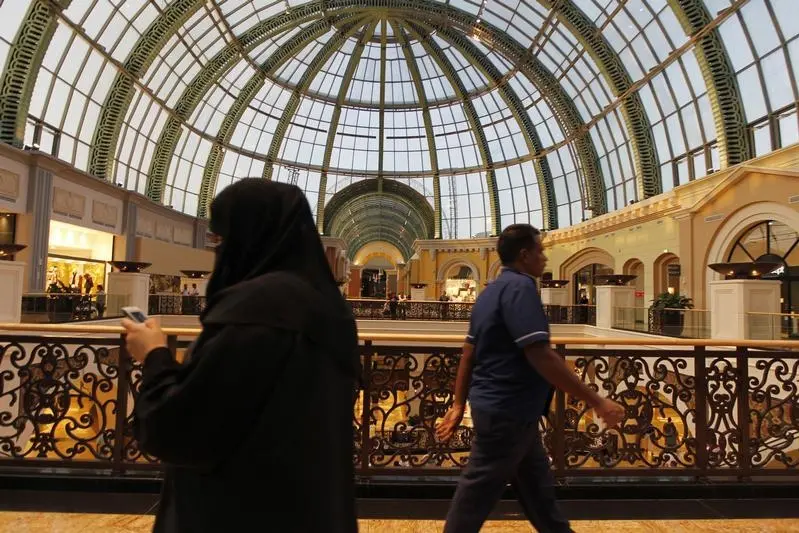PHOTO
Retailers dealing with home furnishings and improvement as well as home electronics will be among the first to bounce back quickly once the coronavirus pandemic is contained and normalcy returns, according to an analyst.
Private consumption in the UAE, which accounts for about a third of the country’s real gross domestic product (GDP), has contracted greatly since commercial stores and shopping malls shut their doors and consumers isolated themselves in their homes, and retailers have taken a hit as a direct consequence.
New research showed that the pandemic has not only triggered extraordinary shocks to both supply and demand, but it has also prompted consumers to tighten the lid on spending amid rising unemployment and income insecurity.
However, Colliers International said private consumption will quickly resume once consumer confidence springs back and the pandemic is over, and the immediate beneficiaries will be the retail industry.
“Research into previous economically challenging situations points out that when an economic downturn or recession takes place, consumers will particularly focus on spending money on necessities while deferring or cancelling large purchases such as for example a new house, a new car, holidays or furniture in light of increased economic insecurity,” Ricardo Bergsma, director for leasing and retail advisory services at Colliers International Middle East and North Africa (MENA), told Zawya.
During the pandemic, he said, consumers tend to spend their money mainly on food, specialty food products, personal hygiene and clothing, among others. However, he said, the scope of these so-called “necessities” will gradually widen once consumers have more economic certainty and their behavior starts to go back to normal with less fear for the coronavirus.
“It is then expected that consumers will also spend more money to enhance the quality of their lives within the comfort of their own homes, resulting in an increase in do-it-yourself, home furniture, home sport equipment, electronics and home accessory [expenditures],” Bergsma explained.
One a certain level of normalcy is achieved, Bergsma said they expect the food and beverage, excluding delivery business, and entertainment sector to gradually follow thereafter.
“Besides, retail might recover fast in the Middle East because retail is part of the social fabric - due to the hot climate - of the Middle East, and retail in the region goes beyond traditional shopping, as people also visit malls to meet and interact with people and to be entertained,” he said.
And the more people ultimately step outside their homes, he added, the higher the footfall and the more profitable the retail business is likely to be.
“In China, where it seems that the worst of COVID-19 is over, our offices also see that life is slowly but gradually returning back to normal, with many retailers having opened up their stores again. Frequent news on an increase of footfall and turnover is reported throughout various official and non-official sources,” said Bergsma.
Mall owners in many markets have shut down retail stores, cafes and restaurants, leaving hundreds of thousands of workers either out of jobs or unpaid. Within the Gulf Cooperation Council (GCC) region, Alshaya, a major franchise operator of global brands, including Starbucks, have recently reported a 95 percent decline in revenues.
Against the deteriorating economic backdrop, the non-oil sectors in the GCC are unlikely to expand this year, according to Emirates NBD in its March 2020 report. Add to this the impact of sharply lower oil revenues and the ability of governments in the region to increase spending to support growth is much more limited.
Commercial establishment closures have recently been extended until further notice in the UAE, with the government tightening the movement of residents as the number of infections continues to rise. The move is part of the ongoing precautionary measures to help curb the spread of coronavirus.
Other countries, however, have announced plans to slowly ease lockdown measures. In Germany, certain shops could reopen their doors next week, while schools could resume normal classes gradually from May 4, although large public gatherings are still prohibited until August 31.
In the United States, where the virus has infected more than 760,000 people, President Donald Trump said governors could reopen their states in the coming months, but the move has been met with criticism.
The number of confirmed coronavirus cases has reached more than 2.4 million globally. In the UAE, 479 new cases were recorded on Sunday, bringing the total number of infections in the country with a population of 9.6 million to 6,781.
(Reporting by Cleofe Maceda; editing by Seban Scaria)
#CORONAVIRUS #RETAIL #UAE
Disclaimer: This article is provided for informational purposes only. The content does not provide tax, legal or investment advice or opinion regarding the suitability, value or profitability of any particular security, portfolio or investment strategy. Read our full disclaimer policy here.
© ZAWYA 2020





















